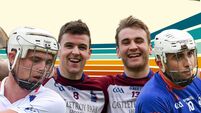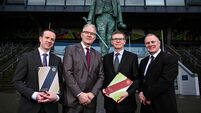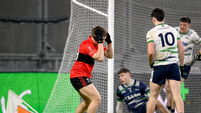Better late than never
YOU remember his run, of course. Who could forget it? If the 1975 All-Ireland final had been played on snow then Mickey Ned O’Sullivan wouldn’t have left a footprint.
Time and again he came swerving and slaloming through the Dublin defence, until one of those runs came to - well, full stop doesn’t do it justice. Try an exclamation mark with double underlining.














